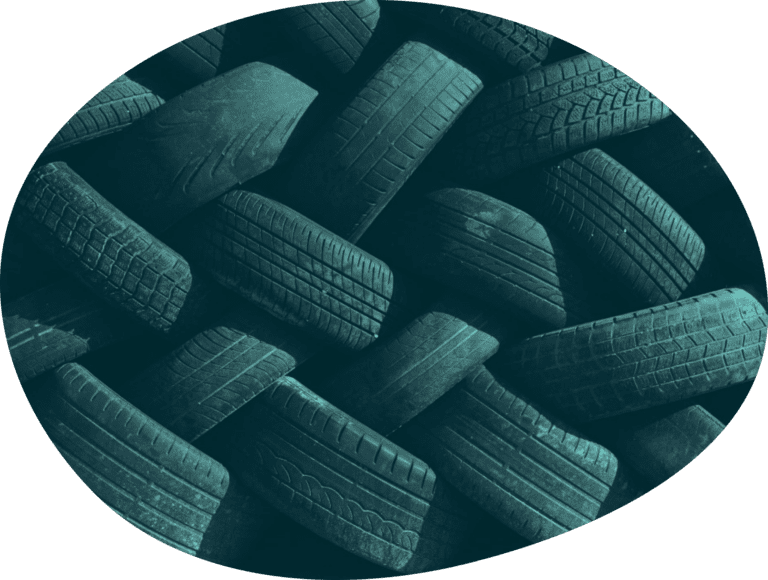
Nylon Circular
Nylon multifilaments and microfilaments sourced from post-consumer circular resources
What is NERIDE CIRCULAR?
NERIDE Circular is a nylon yarn that uses raw materials sourced from post-consumer waste, such as used tires, multi-material plastic packaging waste, and mixed textile waste.
With 100% circular-origin materials, it has ISCC Plus certification.
Sustainable Benefits
NERIDE Circular plays a key role in reducing dependence on non-renewable resources.
Non-recyclable plastic waste, such as multi-material packaging and fabrics made from various types of fibers, as well as other complex waste like tires, can be transformed into circular raw materials through pyrolysis.

MATERIALS ORIGIN
NERIDE Circular uses raw materials derived from post-consumer recycled materials, which are very difficult to manage through conventional recycling methods.
- Used Tires: Pyrolysis thermally decomposes tires, turning them into valuable pyrolysis oil. Otherwise, these tires would remain in landfills or be incinerated.
- Multi-material Packaging waste: Not all materials in the plastic packaging container are easily recyclable. Through a pyrolysis method, multi-material plastics can be converted back into raw materials, contributing to waste reduction.
- Mixed Material Textile Waste: NUREL‘s UPTextile Project turns discarded fabrics into new raw materials.

iscc plus Mass Balance Certification
- ISCC Plus Mass Balance Certification is a sustainability certification system used in the bioenergy and bio-based product sectors.
- It ensures traceability and sustainability of materials throughout the supply chain.
- The certification verifies that the production of materials follows predefined sustainability criteria, including social, environmental, and economic aspects.
- Mass balance certification allows for the mixing of sustainable and non-sustainable materials in the supply chain.
- It provides transparency and credibility to stakeholders by tracking the sustainable sourcing and use of materials in the production process.
Circularity Process

